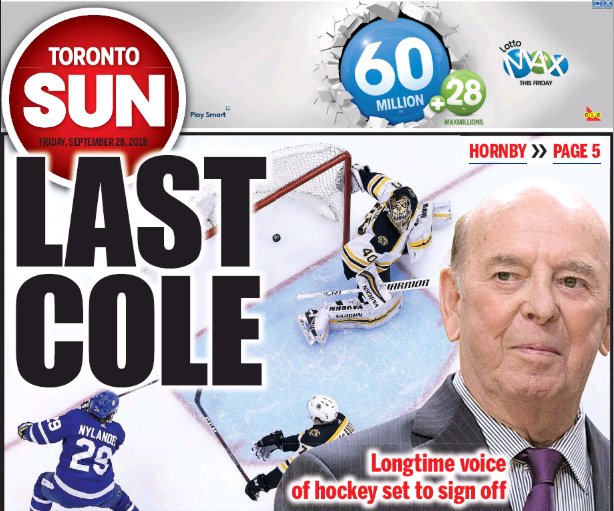
NBCSN beatifies Bergeron, circa 2016.
The farewell that Patrice Bergeron deserves is a fond one: for 19 NHL seasons, he plied his trade as a centreman for the Boston Bruins with a combination of skill, determination, and grace that was positively Béliveau-esque. (And, of course, that’s the farewell he’s getting.) You didn’t need to be a black-and-gold evangelist to admire Bergeron’s composure, leadership, and ability to change the course of a game, or indeed to approve his many successes. He was one of those players, rare enough, who seemed to elevate the game he excels at, confirming its dignity even as he was lifting you, too, as you watched him, to a vantage from which it seemed like he was choreographing the way the game could and ought to be played.
Bergeron, who’s 38, and a son of the western Quebec City suburb of L’Ancienne-Lorette, announced his retirement this morning. “As hard as it is to write,” he said in a statement, “I also write it knowing how blessed and lucky I feel to have had the career that I have had, and that I have the opportunity to leave the game I love on my terms. It wasn’t a decision that I came to lightly. But after listening to my body, and talking with my family, I know in my heart that this is the right time to step away from playing the game I love.”
Bergeron, of course, played his entire NHL career with Boston. After a junior stint in the QMJHL with the Acadie–Bathurst Titan, he was plucked by the Bruins, 45th overall, in the 2003 NHL Entry Draft. The long list of his (approved) successes features a Stanley Cup championship, in 2011, as well as a constellation of international gold medals won playing for Canada, including at the Olympics in 2010 and 2014. No-one has claimed the Frank J. Selke Trophy, which honours the NHL’s best defensive forward, more than Bergeron, who’s won it six times, including for the past two seasons; not Bob Gainey (he won it four times), not Pavel Datsyuk (three times). How did Bergeron never win the Lady Byng? Too many penalty minutes to his name, I suppose, but then Jean Béliveau never won a Byng, either.
Bergeron was named captain of the Bruins in January of 2021. Regular readers of this digest might suspect that there’s be something further to be said on that subject, and there is, but because it’s more of a Bruins thing than a Bergeron, let’s leave that for a separate follow-up post.
It’s here, if you’re interested.

Done and Done: After 19 NHL seasons, Bergeron announced his retirement this morning.


















